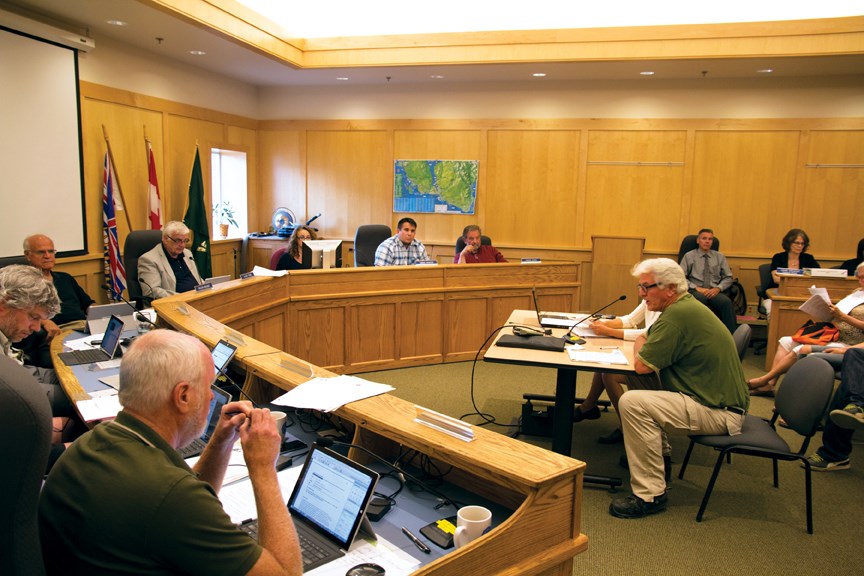The Sunshine Coast Regional District (SCRD) board of directors voted unanimously to exempt certain Sunshine Coast farmers from Stage 4 water restrictions at the SCRD board meeting on July 23.
Delegates Dale Peterson and Annette Clarke requested an exemption for all food producers on the Coast, arguing that food sustainability should take precedence over other water uses. They were accompanied by about 50 concerned Sunshine Coast residents, many of them farmers.
“We feel that farming should not fall under the same classifications as such items as car washes and golf courses,” Peterson said. “While we understand that long-term solutions need to be reached – for our collective goal of food security – commercial farms need to have access to water.”
Manager of infrastructure services Bryan Shoji warned that without significant rainfall, the Sunshine Coast will be at Stage 4 by mid-August and could run out of water entirely by the end of September.
“The challenge is that we have a finite supply. If the drought continues, we’ll run out of water,” Shoji said. “What we’re trying to do is make that water last until the fall rains come. It’s a pretty simple task. The problem is we don’t know when the fall rains are going to come.”
Shoji said the current projections are based on not having any rain. If it rains a little, then Stage 3 can be extended longer since it helps to reduce consumption.
It did rain the weekend following the meeting, but not enough to make much of a difference. Consumption under Stage 3 is at about 14 million litres per day; under Stage 4 it would drop to an estimated 10 million litres per day.
If the Sunshine Coast does run out of water, Shoji said that it would cost about $250,000 for one month of pumping water out of Chapman Lake.
Roberts Creek director Mark Lebbell made the motion to exempt food producers from Stage 4.
“In my view, if we need to go to emergency measures a few days earlier then that’s not a small price,” Lebbell said. “This is not a motion that anybody takes lightly – obviously – because there are fire protection implications and there are ecological impact on the Chapman watershed implications. There are financial implications.
“But the motion that I have is that should Stage 4 of the drought management plan be implemented in 2015, that local food production be exempted from the ban on outdoor watering,” Lebbell said.
Sechelt director Bruce Milne disagreed with Lebbell.
“We have to take seriously what Stage 4 is,” Milne said. “In Stage 4, priority is to provide water to support human health, fire protection and environmental flows. We’re not going casually into some emergency situation where, oh we’ll give some for some and we’ll exempt others. When we get to that stage of exemptions, it’s really serious.”
Elphinstone director Lorne Lewis amended the motion to exempt only the 122 officially recognized farms on the Coast.
Milne was still unconvinced. He furthered the amendment to include only officially recognized farms with meters. The amended motion was passed unanimously.



